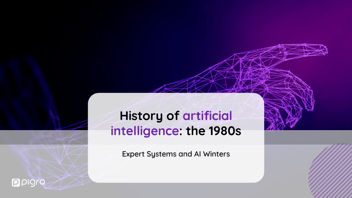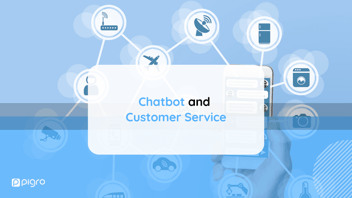The revolution of Wealth Management – With the creation of intelligent machines, artificial intelligence is changing the management of substantial assets, thanks to its ability to solve problems autonomous and efficient.
The machines can analyze and isolate the most relevant Big Data in a short time and facilitate the decision making the process.
The introduction of AI in this area is an opportunity, not only for the management and analysis of Big Data but also to improve customer relationships and facilitate pre- and post-sales management and consulting operations.
Moreover, with artificial intelligence, wealth management will no longer have a narrow target of customers but will be able to expand its scope of activities to millennials.
What is wealth management?
Wealth management includes all those services of high quality that regard the control of the wealth to a limited number of customers that have a consistent patrimony and requirements in continuous evolution in time.
In particular, wealth management deals with asset protection over time and future investment goals.
The main asset of wealth management is savings management. The wealth management service is divided into two well-defined ones:
-
Advice on the choice of investments is the planning phase in which a consultant advises the most appropriate financial instruments for the client.
-
Portfolio management which encompasses all the securities purchasing activity on the financial markets on behalf of the client.
AI and wealth management
Wealth management is affirmed today as a natural evolution of private and investment
banking. This trend has been dictated by the increasing needs of customers and the consequent weight of the services required, in particular advice.
The intelligent machine can manage normal back-office administrative activities, from marketing to investment management.
With AI, new communication systems between intermediaries and clients are an essential factor in the consultant-client relationship.
Consultants, thanks to the introduction of AI, can expand their activities and serve their customers effectively by increasing their productivity by managing the daily workflow better.
Collecting and understanding the complex needs of customers, proposing solutions based on customer history, and explaining complex concepts related to their customers, are the main activities of an AI consultant engaged in asset counselling.
Another factor in favour of AI, in asset management, is the expansion of wealth management to Millenials. They are native Digital, and for them, the technology must be the basis of any activity. With the introduction of AI, wealth management is also affecting new generations.
Moreover, millennials, unlike previous generations, value experience more than profit and do not consider money the only factor of success. Their vision of a sustainable world and their tendency to invest in socially responsible companies have opened up new challenges for wealth management.
Although wealth management is a service that can only be enjoyed by holders of huge assets (500,000 euro base)Today, technological innovations make it possible to reduce unnecessary costs and offer a highly specialized service to people with assets of less than 100,000 euros.

Wealth Management and fintech
AI, chatbots, and robots are the fintech technologies that are changing the financial market and in particular, wealth management.
The fintech companies are introducing innovative solutions that use artificial intelligence and robotics, to reduce costs and facilitate operations to consumers in the post-sales and customer care; With artificial intelligence, consumers can manage their money easily, quickly and effectively.
Reducing data storage, management, and analysis costs are the main reason why financial institutions rely on fintech companies.
Benefits of Artificial Intelligence in wealth management
AI and machine learning bring benefits to managers and financial advisors in three particular areas:
1) Management and analysis of Big Data: thanks to artificial intelligence, wealth managers can isolate Big Data (vast masses of data and graphs) more meaningful and relevant to facilitate and reduce decision-making time.
2) Analysis and forecasting of market trends: The ability of artificial intelligence to predict market trends facilitates the decision-making operations of financial managers and consultants.
3) Management of risk: Artificial intelligence can detect and react to the first signs of market volatility allowing financial managers and consultants to respond faster than the competition and improving risky activities and strategies of the cover story.
This is how artificial intelligence is integrated into the wealth sector and how easy it is to manage with chatbots, machine learning, and robots.
While traditional private bankers, through their relationships, have managed customer needs and ensured a high level of service, digitization of heritage management services does not replace that high-quality personal relationship but improves it by accelerating processes and using customer data to predict precisely what will be closest to their needs shortly.
AI can help wealth companies maximize their potential by recommending the Next Best actions, increasing productivity, and improving the quality of experiences and relationships with customers, allowing the latter to receive an increasingly specific and personalized service.
Sources: Wallstret Italia, Moneyfarm, Finscience
Learn more: Focus on Knowledge Management: how to automate the management of information
Do you want more information on Pigro? Contact us!



